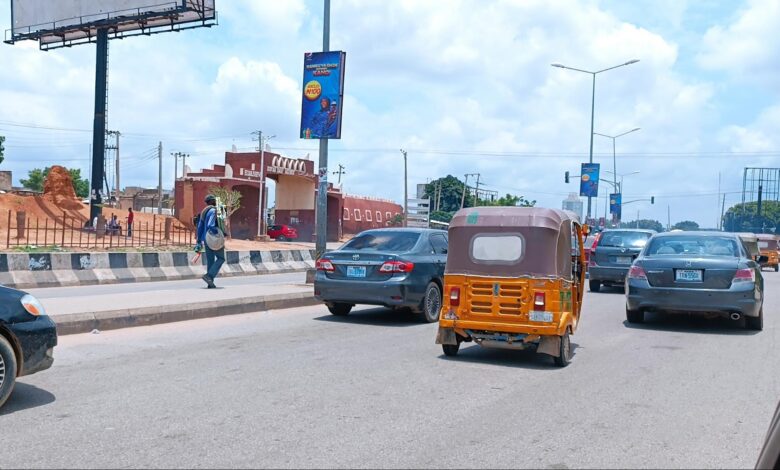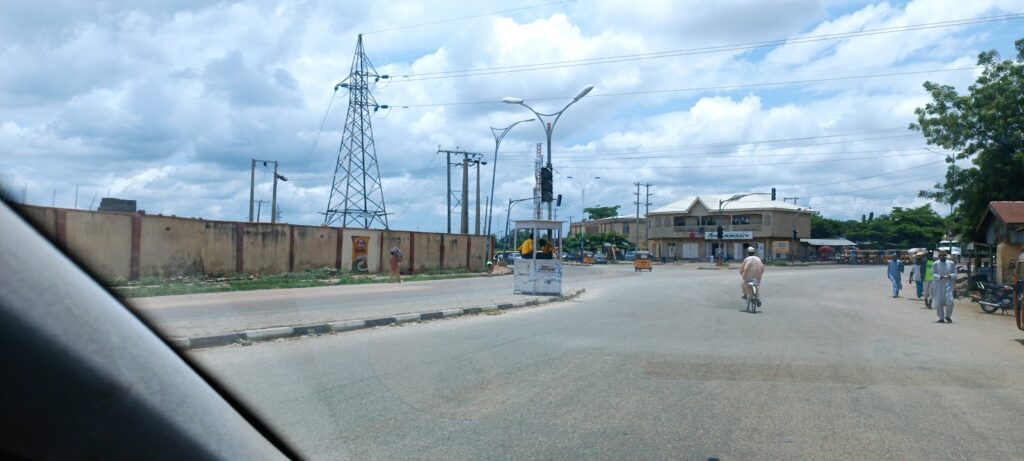An Encounter With Kano’s Gang Of Phone Snatchers
Known locally as Yan Hamsin, they move in large numbers, block roads and underpasses, storm traffic jams, and confront local vigilantes in northwestern Nigeria.

On Aug. 24, a lorry heading towards Dawanau foodstuff market in Kano, Northwest Nigeria, blocked the ever-busy Kofar Ruwa underpass, instantly causing heavy traffic. A few minutes later, phone snatchers appeared out of nowhere and began pursuing drivers and tricycle passengers, forcefully confiscating their phones and other belongings. People watched helplessly as they were robbed in broad daylight. Out of fear of the consequences, they handed over their possessions without attempting self-defence.
The daylight robbers kept taking people’s possessions until they found the one person who put up a fight. He began resisting, and in an instant, others joined. The phone snatchers were apprehended and beaten mercilessly until they were unconscious before being turned over to the police.
That was a rare case of people confronting the armed phone snatchers. In many cases, they rob people of their properties and run away. Kano residents have started considering jungle justice similar to what is seen in other states. “Whenever phone snatchers are arrested, they should be beaten to a pulp before they are taken to police stations,” said Dan Muja, a frustrated Kano resident.
About three weeks ago, a similar incident happened. At around 8 p.m. on a rainy day, I drove down to Jakara, Kano Municipal, to buy some items, but to my surprise, I found shops closed in a place where people stay till 2 a.m., with only a few moving cars and tricycles. I didn’t ask what happened that caused this unusual atmosphere at that time.
The following day, I drove back to the place to buy the items. I later learned that a group of fifty or so phone snatchers had raided the area, taking everyone’s phones and other valuables. They targeted phone charging stations as well as nearby phone-selling stores.
Petty robberies involving the snatching of phones have remained one of the most pressing security issues in Kano, with multiple fatalities recorded. At first, people who drove tricycles at night were blamed for the crimes. Criminals lurk and target tricycle passengers on the many unlit and damaged roads in the city. The state government attempted to address the issue by prohibiting the use of tricycles in public after 10 p.m., but this only helped a little.
About three months ago, after my car overheated, I pulled over at the Dan-Agundi junction to check the water level in the engine system. A minute later, I noticed around 20 young people on the move, most of them carrying sticks or cutlasses.
At first glance, I mistook them for members of a vigilante group, but they weren’t even wearing uniforms. Nonetheless, I didn’t freak out and kept on until they passed. A vulcaniser on the other side of the road told me after they had left that they were a gang of phone snatchers who frequently hit that area. He informed me that they just finished robbing from the other side of a junction near where I was. I zoomed off immediately after I heard the whir of police sirens approaching.

Challenging different attempts to stop them, the criminals have resorted to blocking roads and underpasses, moving in large numbers, and storming traffic jams, which has been particularly problematic in Kurna, Dan-Agundi, Kofar Mata, Kabuga, and many other parts of the state. Recently, phone snatchers have become armed gangs commonly referred to as Yan Hamsin (moving in fifties).
Local vigilante groups, the Yan Kwamati, have attempted to address the issue through community policing. Many others in parts of Kano have come together with support from the government. They make arrests and turn the suspects over to law enforcement agents. After that, members of the Yan Hamsin began to attack the vigilantes.
The office of Yan Kwamati in the Dambazau neighbourhood of Kano Municipal was attacked by the gang operating between Adakawa and Kulkul in the Dala Local Government Area (LGA). They broke into the office and stabbed several members of the vigilante group about a month ago.
Many blame politicians in the state for escalating the problem to an unmanageable level. Most people involved in snatching cell phones are said to be young political thugs and drug addicts who were once employed by their godfathers but were later abandoned until another campaign cycle. In the run-up to the election, politicians have been accused of helping some of these criminals out of jail to use them for political violence. This has exacerbated the situation.
Some people believe that the punishment handed out to phone snatchers caught so far is not severe enough to deter future crimes. Most of the time, they only get a few months in jail, and then they return to doing terrible things as soon as they get out. “They should be dealt with as the armed robbers that they are,” said tricycle driver Gausullahi Buhari.
The government of Kano State recently considered taking out a loan to install security cameras, a move that it says would help reduce crime. However, this plan has been challenged in court, and the decision put on hold. Some locals who feel unsafe don’t trust the move to take a loan because the government’s City Watch project, which features a giant screen showing what’s happening in key locations across the state, hasn’t reduced crime as much as was hoped.
While states in Northwest Nigeria face various forms of armed violence, the criminal activities of phone snatchers have made life difficult for everyone in Kano state. Picking up the phone to answer a call or record a video has become a nightmare. To avoid opening the door to jungle justice, security forces must step up operations and make the criminals face the wrath of the law.
Support Our Journalism
There are millions of ordinary people affected by conflict in Africa whose stories are missing in the mainstream media. HumAngle is determined to tell those challenging and under-reported stories, hoping that the people impacted by these conflicts will find the safety and security they deserve.
To ensure that we continue to provide public service coverage, we have a small favour to ask you. We want you to be part of our journalistic endeavour by contributing a token to us.
Your donation will further promote a robust, free, and independent media.
Donate HereStay Closer To The Stories That Matter




